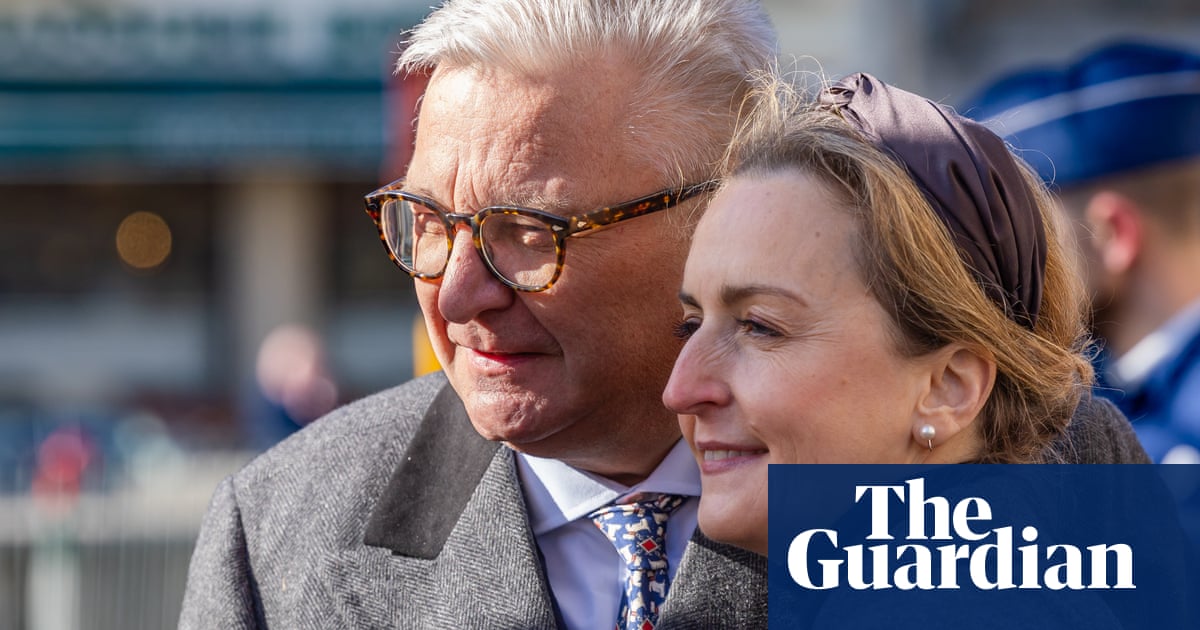Should royalty be entitled to social security? A recent legal battle involving a Belgian prince is sparking a global conversation on the intersection of royal privilege and modern social welfare systems. This article delves into the complexities of this case, exploring evolving expectations around royal finances and accountability, and what it means for the future of social security benefits and the role of royalty in the 21st century.
Table of Contents
The recent legal battle involving a Belgian prince and his quest for social security benefits highlights a fascinating intersection of tradition, modern expectations, and the evolving role of royalty in the 21st century. This case,the first of its kind in Belgium’s history [[1]], offers a glimpse into potential future trends concerning royal finances, social welfare, and the public’s perception of privilege.
The Core conflict: Allowance vs.entitlement
at the heart of the matter is the question of whether a member of the royal family, receiving a ample allowance, should also be entitled to the same social security benefits as ordinary citizens. Prince laurent argued that his work,including representing Belgium and managing his animal welfare foundation,qualified him for these benefits [[3]]. The court, however, disagreed, viewing his duties as akin to those in the civil service, where specific benefits exist but not a comprehensive social security system [[1]].
This case underscores a growing trend: the increasing scrutiny of royal finances and the expectation that even those in privileged positions should contribute to and benefit from the social safety net.
Future Trends: Transparency and Accountability
One clear trend is the demand for greater transparency in royal finances. As the public becomes more aware of the financial arrangements of royal families, there will be increased pressure for accountability. This could manifest in several ways:
- Public Disclosure: Increased calls for the public disclosure of royal allowances, expenses, and investments.
- Taxation: Discussions about whether royal income should be subject to taxation, mirroring the tax obligations of ordinary citizens.
- Auditing: Self-reliant audits of royal finances to ensure responsible spending and prevent misuse of public funds.
Pro Tip: Royal families can proactively address these concerns by voluntarily disclosing financial details and demonstrating a commitment to responsible financial management.
The Changing Role of royalty
The modern role of royalty is evolving. While conventional duties like ceremonial appearances and representing the nation remain crucial, there’s a growing emphasis on:
- Philanthropy: Increased involvement in charitable causes and social initiatives.
- Advocacy: Using their platform to advocate for critically important issues, such as environmental protection or social justice.
- Entrepreneurship: Some royals are exploring entrepreneurial ventures, balancing their traditional roles with modern business practices.
Did you know? Several royal families have already embraced these changes.Such as, members of the British Royal Family are actively involved in various charitable organizations, and some have launched initiatives to promote sustainability.
The debate over Prince Laurent’s social security claim also touches upon broader trends in social welfare. As societies grapple with issues like an aging population, rising healthcare costs, and economic inequality, the following trends are likely to emerge:
- Global Basic Income (UBI): Discussions about UBI, which could provide a safety net for all citizens, regardless of their employment status.
- Healthcare Reform: Efforts to reform healthcare systems to ensure access to affordable and quality care for all.
- pension Reform: Reforms to pension systems to address the challenges of an aging population and ensure financial security in retirement.
Reader Question: How do you think the role of royalty will continue to evolve in the next few decades? Share your thoughts in the comments below!
The case of Prince Laurent is a microcosm of the broader societal shifts occurring around the world. As royal families navigate the complexities of the 21st century, they will need to adapt to changing expectations, embrace transparency, and demonstrate a commitment to social responsibility. The future of royalty will depend on their ability to balance tradition with modernity, privilege with accountability, and public service with personal well-being.
What are your thoughts on the future of royalty and social security? Share your comments and insights below!

